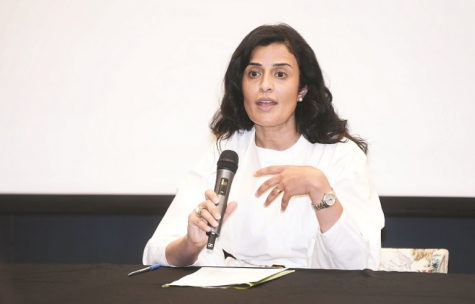On 5 July 2019, the United Nations (UN) Special Rapporteur on the situation of human rights defenders and Special Rapporteur on minority issues published an allegation letter to the Government of Kuwait on behalf of Dr. Ebtehal Al-Khateeb, who is allegedly facing harassment for speaking out for the rights on the Bedoon minority community in Kuwait.
Dr. Al-Khateeb is a human rights defender and academic working in the Department of English Language at the University of Kuwait, and has fought for Bedoon rights for a number of years. Although members of the Bedoon minority have lived in Kuwait for generations, the Kuwaiti government continues to deny them citizenship, rendering them stateless. As a byproduct of statelessness, the Bedoon people are unable to access basic social services, including education, housing, healthcare, and resources to avoid living in relative poverty. Additionally, the Bedoon face discrimination in hiring practices.
In 2012, Dr. Al-Khateeb founded Group 29, an organization based on Article 29 of the Kuwaiti Constitution, which states “all people are equal in human dignity and in public rights and duties before the law, without distinction to race, origin, language, or religion.” The group focuses on the fight for equality and non-discrimination for all people, specifically the Bedoon community.
Recognized for her activism for the Bedoon community, Dr. Al-Khateeb was invited to speak at a side event on 21 September 2017 hosted by the Gulf Center for Human Rights during the 36th session of the United Nations Human Rights Council. Addressing the audience over video she described the harassment and ill-treatment faced by Bedoon in Kuwait.
Most recently, on 10 April 2019, Dr. Al-Khateeb delivered a short speech at the symposium, “Lights on the Bedoon issue,” organized by the Kuwait Democratic Forum, where she highlighted the ongoing violations against the Bedoon community. She demanded their civil, political, and other human rights be respected. In response, the president of the Group 80, an organization founded to oppose any amendments of the laws on nationality that would guarantee citizenship rights to members of the Bedoon community, verbally attacked her on Twitter, accusing her speech as a “shameful questioning of Kuwait and its Emir.” The tweet was followed by an intense campaign by various twitter accounts that attacked Dr. Al-Khateeb and released personal information about her and her family. Similar tactics were used against other activists defending the Bedoon minority’s rights in Kuwait.
The UN Special Rapporteurs express serious concern at the allegations of an online attack, in response to Dr. Al-Khateeb’s peaceful and legitimate work advocating for the human rights of Bedoon people in Kuwait. These attacks in response to her work violate her rights to freedom of opinion and expression. As mandated by the Human Rights Council, the UN Special Rapporteurs request the Kuwaiti government provide information on the number of members of the Bedoon community denied Kuwaiti citizenship, details concerning national legislation focused on protecting victims of online harassment, and the measures taken to ensure that activists in Kuwait are able to continue their peaceful, legitimate work.
Kuwait has responded to the allegation letter, and its response is being translated.
Alisha Parikh is an Advocacy Intern at ADHRB





